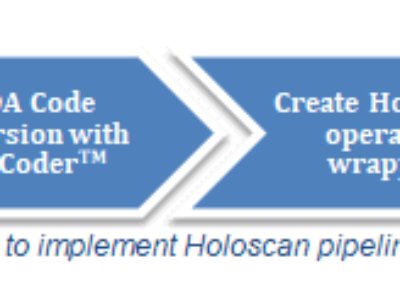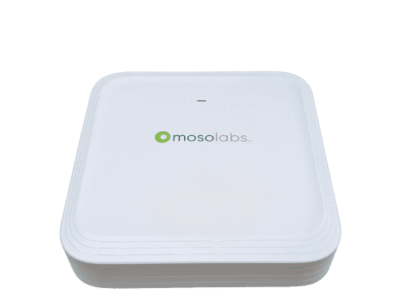
Bosch Sensortec is the subsidiary of Bosch set up to handle sales of MEMS in consumer applications while the parent company continues to focus on MEMS for automotive. Both the parent and Sensortec share access to the fabs.
“We would be open to talking but in the end it would be a question of the business case,” Finkbeiner told eeNews Europe on the fringes of the European MEMS Summit, held in Stuttgart last week. “It would probably be somebody who wanted to make a more complex process or develop a process we were interested in as well. It might be a means to share the risk on process development,” said Finkbeiner.

Finkbeiner emphasized Bosch would not operate as a simple foundry partner selling capacity in its wafer fabs on standard processes. “There would have to be some sort of strategic reasoning and it could involve investment as well,” he said.
Bosch has a dedicated 200mm wafer fab in Reutlingen, Germany, built along side a 6-inch wafer fab that has been in operation since 1995. The 200mm facility was formally opened in March 2010 and created with a budget of €600 million, the largest single investment in Bosch’s history.
Bosch already has one foundry client, SiTime Corp. (Sunnyvale, Calif.) a wholly-owned subsidiary of MegaChips Inc. of Japan and a pioneer of MEMS resonator devices as replacements for quartz timing devices. However, that is mainly for historical and legacy reasons. The core of the technology used by SiTime started within Bosch, but the company did not want to exploit it. Markus Lutz and Aaron Partridge thought they could make a business round the technology and co-founded SiTime in 2005 and received investment from Robert Bosch Venture Capital GmBH. Bosch has been the foundry manufacturer of MEMS die for fabless SiTime since then. However, Bosch has not been particularly active seeking out foundry partnerships as it ramped up production at Reutlingen.
Finkbeiner emphasized Bosch would not simply operate as foundry partner selling capacity in its wafer fabs on standard processes. “There would have to be some sort of strategic reason and it could involve investment as well,” he said. “But we are open for business,” said Finkbeiner.
When the Reutlingen 200mm wafer fab was originally opened it was stated that it could take up until 2016 for the fab unit to become fully facilitized.
Consumer is fine
Bosch Sensortec is particularly focused on selling MEMS components into consumer applications, which might be expected to make Finkbeiner sensitive to the slowing growth in the smartphone market. “There may be a slow down in smartphone unit shipments but companies are looking to use more sensors and to achieve more differentiation by sensors,” Finkbeiner said. He added that augmented and virtual reality and wearable equipment are growing. “That is why we are looking for new use cases.”
The demarcation of Bosch subsidiary companies means automotive market is less relevant to Bosch Sensortec although Bosch would likely make sales in cabin comfort applications and infotainment where Finkbeiner said he sees more and more deployment of microphones. “I don’t expect a revolution but ADAS [advanced driver assistance systems] in automotive is a very big driver of sensor content,” he told eeNews Europe.
Finkbeiner has previously said how he is a believer in the sensor platform that combines hardware and software (see MEMS platforms are way to go, says Bosch’s Finkbeiner). He said the Bosch Sensortec’s strategy was to diversify in terms of applications and use cases to try and catch what ever the big demand application would be. He said technology is expensive to develop and technology looking for a problem was not as successful a business model compared with finding a genuine market need and then crafting a solution. “We want to get more out of the technology we already have. So diversification if it adds value and market success and mainly diversification of applications and the use of software can help to address multiple markets.”
On the topic of China Finkbeiner said Bosch Sensortec was not coming under pressure to enable local manufacturing of its components there. “Bosch does have facilities in China; we can leverage that. But MEMS is strategic to Bosch so we use a big fab in Reutlingen to get economies of scale.”
Related links and articles:
News articles:
MEMS platforms are way to go, says Bosch’s Finkbeiner
Bosch Sensortec grows in mobile and beyond, says CEO: Part 1
Bosch Sensortec grows in mobile and beyond, says CEO: Part 2
MEMS will be made on 300mm wafers, says Bosch exec
Bosch opens billion-dollar wafer fab
 If you enjoyed this article, you will like the following ones: don't miss them by subscribing to :
eeNews on Google News
If you enjoyed this article, you will like the following ones: don't miss them by subscribing to :
eeNews on Google News




